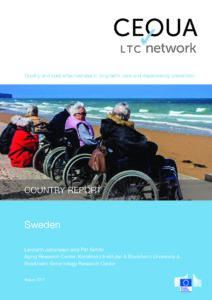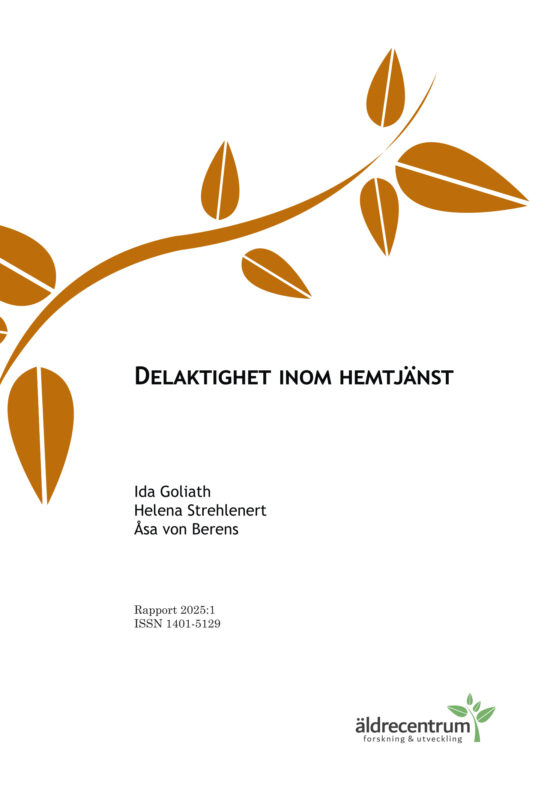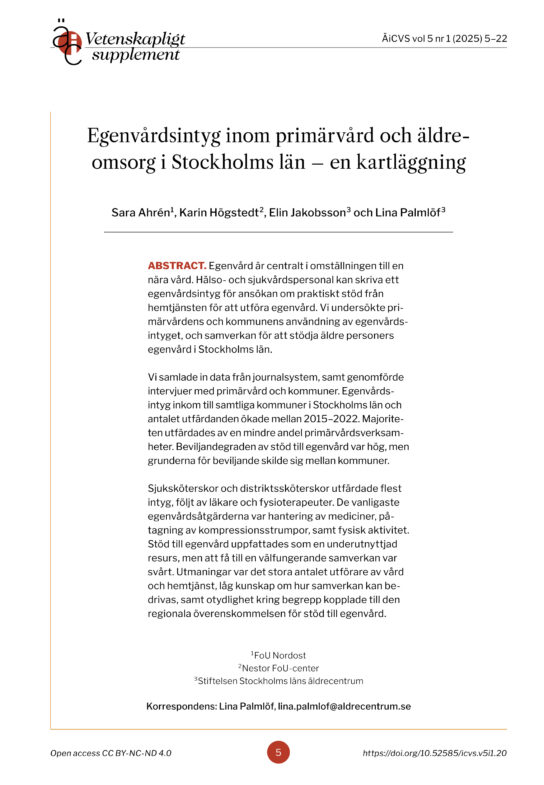Internationellt samarbete
In recent decades Sweden experienced social, demographic and economic changes affecting the nature and intensity of support received by people with long-term care (LTC) needs. In terms of service coverage, the Swedish old age care system peaked in the early 1980s. Since then, a dramatic reduction of institutional beds has spurred an intensive debate among older people, their families and the public, about eligibility and ‘the right to care’. Reforms in favour for a marketization of care, implying a fragmentation of care, have created problems for older people with complex health problems and severe needs who are dependent on coordinated service and care (Szebehely & Trydegård, 2012).
 This report summarises emerging policy developments in Sweden in relation to quality and cost-effectiveness and dependency prevention in the long-term care area. It reviews recent key policy developments in the following four areas: health promotion, measures to support carers, use of innovative care models and new technologies. and strategies to improve care coordination.
This report summarises emerging policy developments in Sweden in relation to quality and cost-effectiveness and dependency prevention in the long-term care area. It reviews recent key policy developments in the following four areas: health promotion, measures to support carers, use of innovative care models and new technologies. and strategies to improve care coordination.
This Sweden country report, within The CEOUA LTC network, is published in English and is the result of a co-operation between Aging Research Center, Karolinska Institutet & Stockholm University & Stockholm Gerontology Research Center.
Ladda ner PDF
Publicerad:
23 juli, 2018
 This report summarises emerging policy developments in Sweden in relation to quality and cost-effectiveness and dependency prevention in the long-term care area. It reviews recent key policy developments in the following four areas: health promotion, measures to support carers, use of innovative care models and new technologies. and strategies to improve care coordination.
This report summarises emerging policy developments in Sweden in relation to quality and cost-effectiveness and dependency prevention in the long-term care area. It reviews recent key policy developments in the following four areas: health promotion, measures to support carers, use of innovative care models and new technologies. and strategies to improve care coordination.



